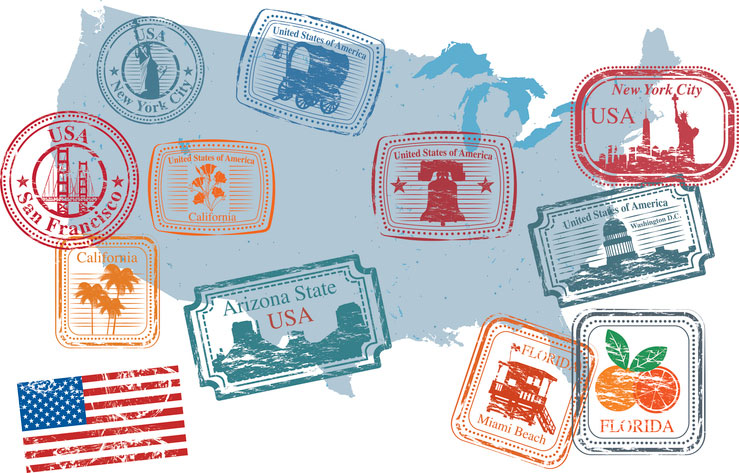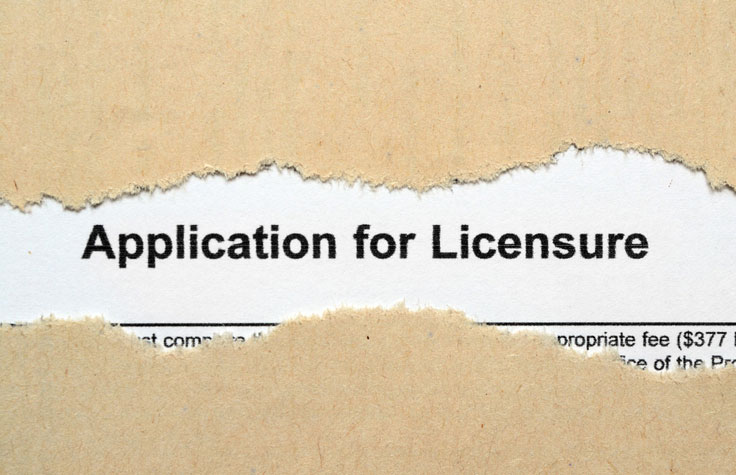Written by Scott Wilson

Sometimes it seems like everybody wants to move to Florida.
Florida is the fastest growing state in the country, with 55,000 new residents relocating to Orlando alone between 2022 and 2023. According to Census data published in 2024, The Villages, Lakeland, Ocala, and Port St. Lucie are four of the five fastest growing metro areas.
You’d better believe that many of the new arrivals here are over the age of 65 and just about to start accessing local social services and healthcare providers in a major way.
The state is jam packed with job openings, too, though, with a strong economy that makes relocating easy for most folks. That’s particularly true when it comes to social work positions here in Florida, which the Bureau Of Labor Statistics forecasts will grow at a rate of around 17% over the next decade – a full 10% faster than the rest of the country.
But many of those jobs require licensure, and Florida doesn’t just automatically recognize social workers licensed in other states. If you plan to practice clinical social work in Florida, you will need a Florida-issued Licensed Clinical Social Worker (LCSW) credential, full stop.
Don’t let that put a hitch in your plans to relocate. Florida’s Board of Clinical Social Work, Marriage & Family Therapy and Mental Health Counseling has a path that makes it relatively easy to work with your existing state credential as a basis for becoming licensed in Florida.
Becoming a Licensed Social Worker in Florida Doesn’t Require Starting over From Scratch
You already know how much work it is to become a fully credentialed clinical social worker anywhere in the country—a four year bachelor degree, one or two year master of social work, plus extensive on-the-job experience and testing.
Although Florida doesn’t offer reciprocal licensing for any sort of social worker, it does make the process of getting a clinical social work license easier for anyone who already holds a similar license in a different jurisdiction.
Macro social workers who might be interested in getting a CMSW (Certified Master Social Worker) credential in Florida have no such luck.
The Certified Master Social Worker in Florida doesn’t have many comparable credentials in other states, so there is no endorsement or transfer option at all for a CMSW.
On the other hand, a CMSW is relatively easy to earn on top of an LCSW license. And on the other other hand, you don’t actually need a CMSW to practice macro or mezzo social work in Florida. Since it’s a voluntary credential that doesn’t actually grant any legal authority within a defined scope of practice, it’s not a must-have anyway.
There are a few basic qualifications for people hoping to earn an LCSW by endorsement:
- You must currently hold an unencumbered license in another state, meaning you must not have an active disciplinary actions or restrictions
- That license must give you the authority to provide clinical social work services
- It must be the highest level clinical license available in that state
If you check those boxes, you are on your way to applying for a Florida LCSW by endorsement.
How to Apply for Social Work Licensure by Endorsement in Florida

The essential intent of the endorsement process is to both verify that your license elsewhere is valid and in good standing, and to make sure that it ensures you have similar qualifications to those set down by the state of Florida for clinical social workers. That basically boils down to verifying that an MSW or DSW was needed to get your current license, and that you had to perform a reasonable number of supervised post-graduate hours on the job.
Florida actually has one of the lowest requirements for supervised experience in the country, coming in around half of the typical 3,000 hours needed to earn an LCSW in most states.
If you meet the criteria, applying for an LCSW by endorsement is straightforward. You can download and fill out a PDF application or use the state’s Medical Quality Assurance system to apply online.
You’ll also need to submit a license verification form to the state authority which granted your current license. If you are licensed in multiple other states, you’ll need verification from all of them. A copy of the verification form can be found with your application paperwork.
While you already took the required ASWB Clinical exam in the course of earning your existing license, the Board still wants to see a copy of your score. That means you’ll need to contact ASWB to have them send the Board your official score report directly.
Your Education Isn’t Quite Finished When You Apply for Licensure by Endorsement in Florida
Even with your master’s-level social work education out of the way before you moved here, you aren’t quite done with your days in the classroom.
On top of all those college courses, you will need to complete Florida-specific educational courses before your endorsement will be approved.
That consists of:
- Taking an 8 hour course on Florida Laws and Rules
- Completing a 3 hour course on HIV/AIDS
Both courses must be offered by Board-approved continuing education providers. You can find both individual courses and package deals including both required classes through the CEBroker.com website, which the state also uses to track continuing education hours. You may find other providers that also are approved by the Board, but all your data will end up on CEBroker either way.
It’s possible to delay your completion of the required HIV/AIDs course for up to six months by submitting an affidavit attesting to your intent to complete the class within the timeframe.
You will also need to meet Florida standards in a few other areas that may differ from requirements in your current state.
- Health History - You’ll be asked about physical and mental disorders with the potential to affect your practice, and be required to explain or have a physician certify why they will not do so.
- Substance Use - If you have been treated for a substance use disorder, you’ll have to provide similar health care practitioner assurance and provide explanations of your condition and how you have overcome it to be able to practice effectively again.
- Disciplinary Actions - If you have ever been disciplined by professional boards or your prior state of licensure, you’ll need to provide an explanation as well as a copy of both the complaint and final disposition from the agency.
- Criminal History - If you’ve been convicted of a crime of any sort, you’ll need to provide court and arrest records and official documentation that you have completed your sentence from the department of corrections. Additionally, you’ll need to provide an explanation of your actions and restitution.
Many criminal charges can be forgiven, but the Board will evaluate your case individually. One big exception is for conviction of insurance fraud: you’re out of luck if that’s on your record.
A Provisional License May Allow You To Get To Work Even Before Your Endorsement Comes Through

It can take time to get all of the various records and courses covered for your endorsement. In these situations, it’s possible to be issued a provisional license so you can practice while you are fulfilling those requirements.
This is only available to candidates who have satisfied the required two years minimum of post-master’s supervised experience. You can only practice under supervision, not independently. You will have to meet with your supervisor in person at least one hour per month.
A provisional license is only good for 24 months and will not be reissued. Fortunately, that’s typically plenty of time to take care of any outstanding qualifications you need to cover.
With the experience you’ve earned working outside of Florida and the qualification of provisional licensure, you can be an asset to the field of social work in the Sunshine State almost immediately after moving here. With the Board laying a clear path to full-authority licensure by endorsement, you’ll have your Florida LCSW here in no time.
